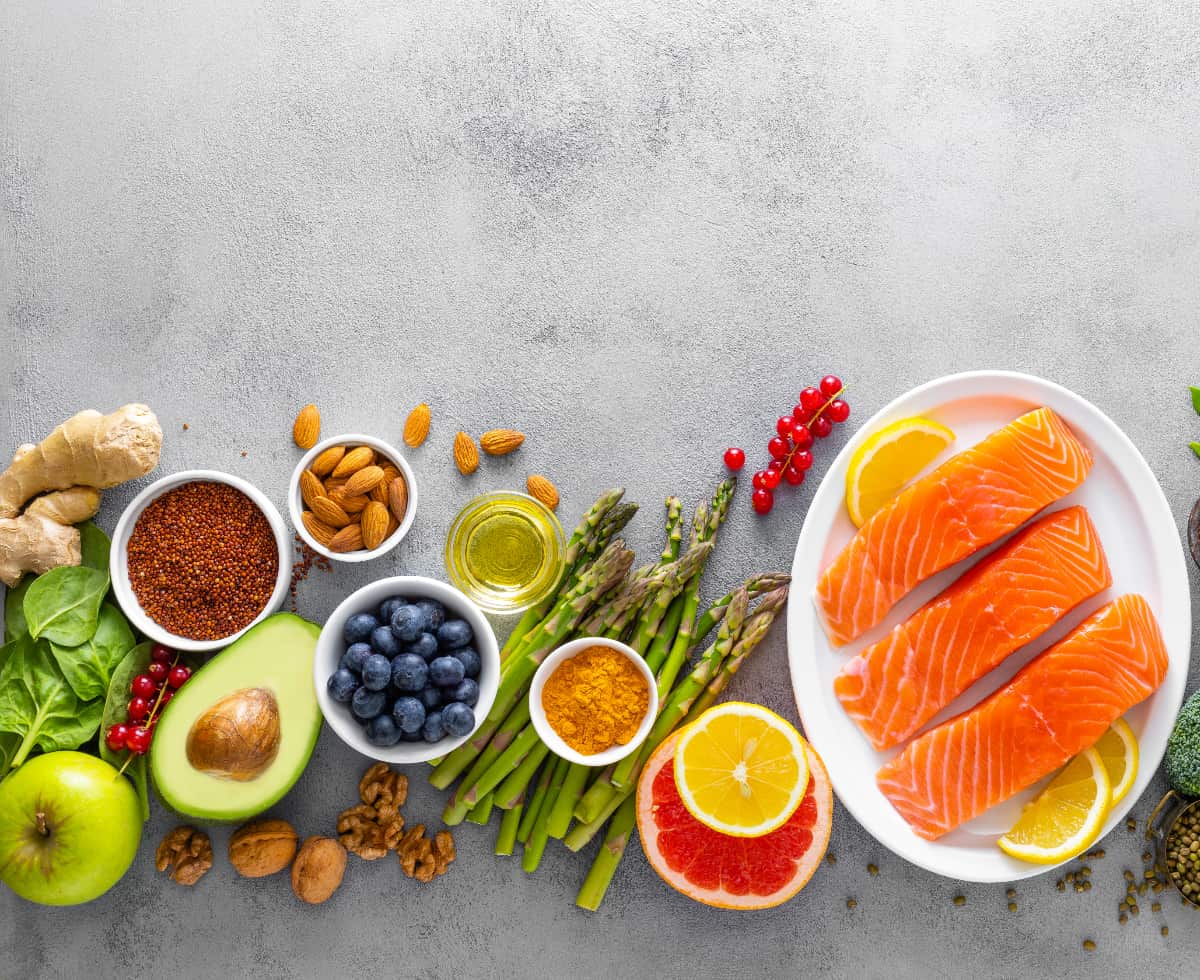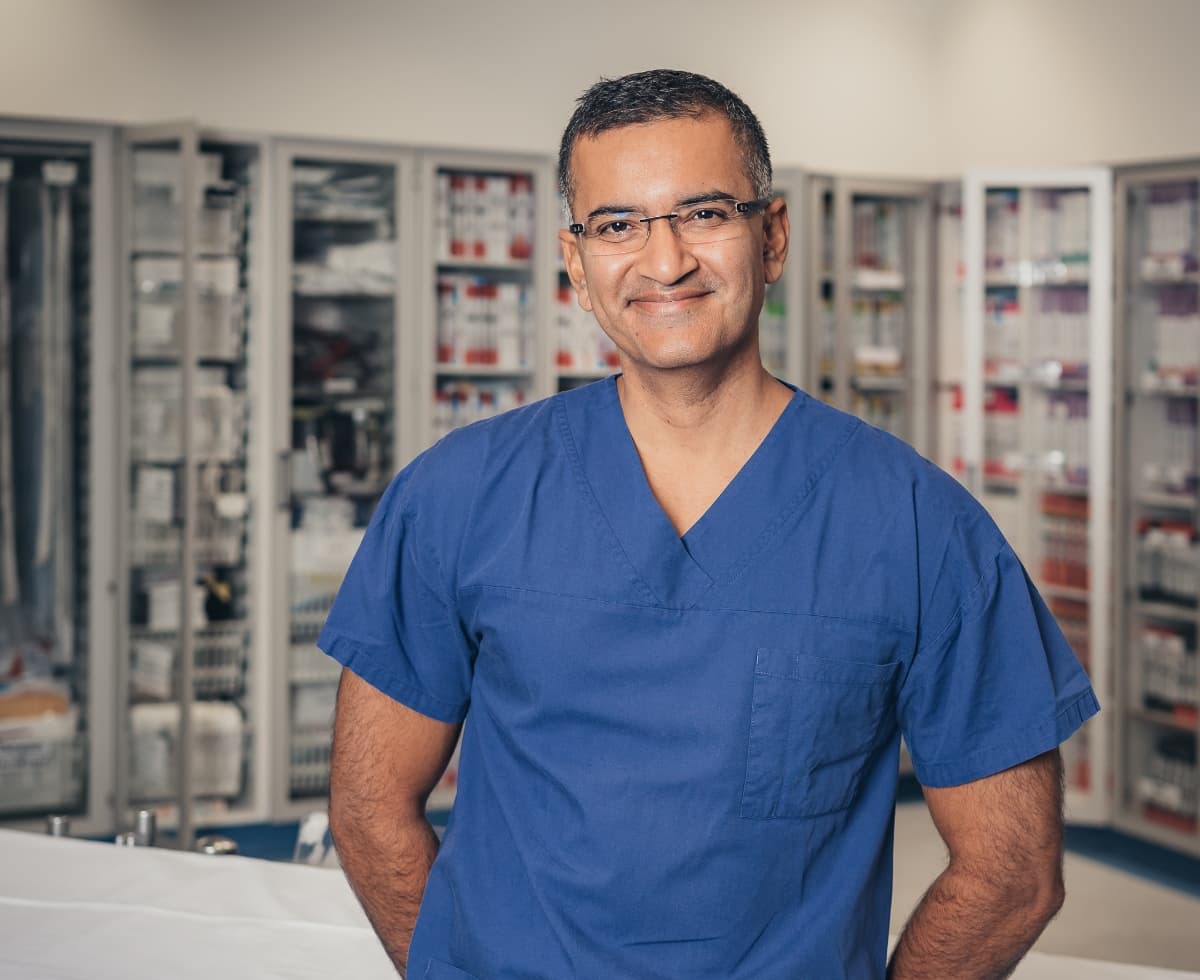Best food for varicose veins
6 foods to include in your diet if you have varicose veins
- Author: Dr Nishath Altaf
- First published: 27 October 2023


Food for varicose veins
How a healthy diet can help you manage varicose veins
There are many factors at play when it comes to varicose veins and why you develop them. Genetics and age for example – two factors you can’t change. But, did you know that diet can play an important role in managing varicose veins as well as preventing them from getting worse?
“Nutrients are the building blocks of our bodies. Some are great to maintain good blood circulation and healthy veins. If you have varicose veins or are at risk of developing them, take a look at these foods and try adding them to your daily eating habits.”

Vein Doctor Perth
What foods are good for varicose veins?
6 foods to include in your diet to manage varicose veins
#1 High-fibre foods
Why is it important? A diet rich in fibre can prevent constipation, which in turn reduces the pressure on veins in your lower body. Less pressure means lowering the risk of varicose veins worsening.
Foods to consider: Whole grains like quinoa and oats, lentils, beans, and fibrous fruits and vegetables such as apples, pears, broccoli, and Brussels sprouts.
Foods to avoid: Processed foods with low fibre content like white bread, pastries, and certain processed snack foods. These can lead to constipation and place extra pressure on the venous system.
#2 Foods rich in vitamin C
Why is it important? Vitamin C helps produce collagen and elastin. These types of protein are essential for maintaining the elasticity and strength of veins.
Foods to consider: Citrus fruits like oranges and grapefruits, bell peppers, strawberries, and spinach are excellent sources of vitamin C.
Foods to avoid: Sugary drinks and snacks can reduce the absorption of vitamin C.
#3 Bioflavonoid-packed foods
Why is it important? Bioflavonoids, found in certain fruits and vegetables, can reduce the symptoms associated with varicose veins, such as swelling and discomfort. They also strengthen the walls of your veins.
Foods to consider: Citrus fruits, berries (especially blueberries and cherries), onions, and even dark chocolate (in moderation).
Foods to avoid: Highly processed foods and drinks which may contain chemicals and preservatives that can counteract the benefits of bioflavonoids.
#4 Foods high in potassium
Why is it important? Potassium helps reduce water retention. Holding too much water can put extra pressure on your veins. Don’t forget to hydrate well. Drinking enough water can help balance this out.
Foods to consider: Bananas, oranges, tomatoes, and leafy greens are all excellent sources of potassium. Don’t forget about fish and nuts as well.
Foods to avoid: Excessive sodium can lead to water retention so avoid salty foods, such as canned soups, processed meats, and certain fast foods.
#5 Magnesium-rich foods
Why is it important? Magnesium has properties that can improve blood flow and circulation, potentially reducing the risk of varicose veins.
Foods to consider: Foods like avocados, dark leafy greens, nuts, and seeds are packed with magnesium.
Foods to avoid: Excessively caffeinated beverages and alcohol, which can deplete magnesium levels in the body.
#6 Omega-3 fatty acids
Why is it important? Omega-3s can boost blood circulation, allowing blood to flow more easily through your veins, which is crucial when you have varicose veins.
Foods to consider: Add fatty fish such as salmon, mackerel, and sardines into your diet. For vegetarian sources, consider flaxseeds, chia seeds, and walnuts.
Foods to avoid: Foods high in trans fats and certain saturated fats like fried foods, commercially baked goods, and certain margarines. These can promote inflammation and negatively impact vascular health.
Varicose vein clinic Perth
In short
Make sure you get plenty of fibre and add foods rich in vitamin C, bioflavonoids, magnesium, potassium and omega-3s to your diet. Cut down on trans fats, salt and alcohol. These changes will help reduce the stress on your varicose veins and help keep healthy veins strong.
As a vein doctor and vascular surgeon here in Perth, I am highly specialised in treating varicose veins via safe, effective and minimally invasive procedures. If you are experiencing swelling, itching and pain as a result of your varicose veins, please get in touch.